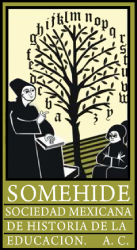Brief history of the Escuela Regional Campesina Mactumactzá, Chiapas (1936-1941)
DOI:
https://doi.org/10.29351/amhe.v4i2.662Keywords:
Teacher training, school institutions, historical investigationAbstract
The Mexican Rural School gave impetus to the formation of several institutions with the purpose of giving way to the educational processes that emanated from the Revolutionary Movement of 1910. In this work we address one, which Raby (1973, p. 554) defined as the most successful teacher training project of the “heroic era” of the Mexican rural school: the Regional Peasant School –ERC–. In this presentation we address the history of the ERC Mactumactzá –Tuxtla Gutiérrez, 1936-1941–. It is a work that was built from the information collected in historical records. We are based on the idea that “we want to better understand the activity of individual schools and teachers, not ‘the rural school’ as an abstraction” (Raby, 1973, p. 554), that is why we recovered the contributions of historical ethnography (Rockwell, 2009) as a research guide and presentation of the findings. The ERC Mactumactzá emerged when the Escuela Normal Rural –ENR– of Cerro Hueco –Tuxtla Gutiérrez, 1931-1935– was completed and was its continuity from the perspective of teacher training established by Narciso Bassols, then Secretary of Education. The work tries to show that Bassols’ intention was not fully realized. We approached the history of ERC in Chiapas from its internal events, from the relationships between the subjects who lived together and confronted each other there. It is a story that shows the particularities of the institution, its operation and premature closure.
References
AHSEP [Archivo Histórico de la Secretaría de Educación Pública].
Civera, A. (2004). La legitimación de las Escuelas Normales Rurales. El Colegio Mexiquense.
Civera, A. (2008). La escuela como opción de vida. La formación de maestros normalistas rurales en México, 1921-1945. El Colegio Mexiquense.
Miñano, M. (1945). La educación rural en México. SEP.
Raby, D. (1973). Los principios de la educación rural en México: el caso de Michoacán, 1915-1929. Historia Mexicana, 22(4), 553-581.
Reynaga, S. (1991). Aproximaciones a una institución escolar: el Instituto Superior de Educación Tecnológica Agropecuaria de Roque, Ceyala, Guanajuato [Tesis de maestría, DIE-IPN, México].
Rockwell, E (2009). La experiencia etnográfica. Historia y cultura en los procesos educativos. Paidós.
Uc, A. (1991). La escuela rural, una nueva escuela de la época de oro de la educación en México. En G. Cano y A. L. García (comps.), El maestro rural. Una memoria colectiva (pp. 201-218). Libros del Rincón/SEP.
Downloads
Published
How to Cite
Issue
Section
License
Copyright (c) 2025 Iván Alexis Pinto Díaz, Rafael Burgos

This work is licensed under a Creative Commons Attribution-NonCommercial 4.0 International License.
Todos los contenidos del Anuario Mexicano de Historia de la Educación se publican bajo una licencia Creative Commons Atribución No Comercial 4.0 Internacional (CC BY-NC 4.0), que permite compartir (copiar y redistribuir el material en cualquier medio o formato) y adaptar (remezclar, transformar y construir a partir del material) para fines no comerciales, dando los créditos a los autores y a la revista, tal como lo establece la licencia.
La política de acceso abierto y de licencias con “algunos derechos reservados” no niega la propiedad intelectual ni los derechos de los autores respecto a sus artículos, pues ellos son los titulares, en tanto que el Anuario Mexicano de Historia de la Educación no los reserva para sí ni para la institución editora, ya que se apegan a movimientos de acceso abierto como los Principios y Valores del Sistema de Información Científica Redalyc - Red de Revistas Científicas de América Latina y el Caribe, que pugnan por la eliminación de las políticas de embargo para que el autor retenga los derechos de su obra (principio número 8). Así como las políticas de acceso abierto del Directory of Open Access Journals (DOAJ).
Los autores podrán distribuir su propio material en cualquier otro medio o soporte, siempre y cuando sea para fines no comerciales, informando a los editores que el trabajo será publicado nuevamente y dando el crédito correspondiente al Anuario Mexicano de Historia de la Educación.
La publicación en el Anuario Mexicano de Historia de la Educación, por su carácter gratuito, no da derecho a remuneración económica alguna a los autores, ni a los dictaminadores.
Los lectores podrán reproducir (copiar), comunicar, distribuir o hacer obras derivadas de los artículos o colaboraciones publicados en el Anuario Mexicano de Historia de la Educación en los siguientes casos:
- Para fines públicos.
- Sin fines comerciales.
- Que se reconozca la autoría de la obra y se cite su origen con información completa: Apellido/s del autor, inicial/es del nombre/s. (año de publicación). Título del artículo. Nombre de la revista, volumen (número de ejemplar), página inicial del artículo-página final del artículo. DOI o URL (formato sugerido de acuerdo al estilo APA en su versión más reciente).
El cuerpo editorial del Anuario Mexicano de Historia de la Educación asumirá el compromiso de notificar oportunamente a los autores sobre cualquier cambio de ubicación de los artículos en el sitio (cambio de dirección URL o de conexiones para identificar el artículo).
Los autores, al enviar sus trabajos para su posible publicación, deberán tomar en cuenta los puntos anteriores, mismos que se contemplan en el Acuerdo entre autor y el Anuario Mexicano de Historia de la Educación.












